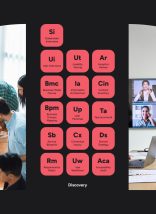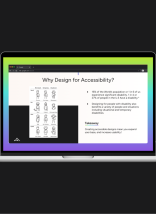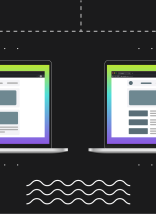Previously, my colleague Jon Parks talked about the importance of being respectful when email marketing. The concept of it being a privilege to be in someone’s inbox is something that applies to all forms of marketing.
Apple goes a step too far?
Take Apple’s recent marketing stunt for example. They decided to make a splash by giving away a free album to every single one of their customers. It sounds like a good idea – who doesn’t like free music? Apparently, quite a few people. Apple’s “step too far” was that they weren’t giving people a coupon for a free album or a link on a website where they could download the album, they were actually putting the album into the users collection. 20 years ago, this would be similar to someone going into your house and putting a free album into your 5 disc cd changer. Yeah, it’s a free album but if you’re not into U2, you are going to be plenty pissed off that someone put music into your device without asking.
Plenty of writers and internet commenters have asked why Apple didn’t just provide a link or the option to download the album. My opinion is that that approach would not have been new or different enough to garner the kind of attention that Apple is seeking with this deal. I don’t think that their intention was ever to make users angry but it was about doing something that hadn’t been done before so that people would talk about it. Even with the complaining from a vocal minority, Apple is getting that attention. From that perspective, the plan worked but that is only because Apple is one of the most well known and most talked about companies on the planet. A smaller business trying a stunt like this could alienate enough of their customers that there would be an overall negative effect.
How Pinterest Left ‘em at the Altar
In another example, Pinterest received some negative publicity for their marketing message to users who had expressed interest in wedding related content. Pinterest had the right idea. Their users were telling pinterest what they were interested in. It makes sense for pinterest to take that data and create a customer segment that they can market to. Their problem was with the message. They chose wording that specifically said “You’re getting married” when that wasn’t the case for many users. This probably would not be a big deal if they sent messages saying “You’re buying a new car” to users with pins of new cars, but getting married can be a touchy subject to many people if they are single or still waiting for that proposal.
In a more personal example, I purchased a device that extended my home theater pc functionality to another room in my house. I was already a customer of the company and used their product in my HTPC so I jumped on the product and paid a premium to be an early adopter. The product worked, pretty much, as advertised so I was happy. That is until I started receiving emails from the company on a weekly basis advertising the same product I had purchased for a significant discount. I understand that buying early comes with a cost but in this case, a 30% discount only months after purchase was making me feel like I had been taken advantage of rather than getting the benefit of a product early.
It’s all about respect
Whether your company has loyal customers like Apple or not, the marketing lesson to learn is that you must respect those customers. Your customers don’t want to be bothered with offers that don’t make sense for their needs. The messaging needs to be accurate and not make assumptions about the users situation. Purchase history or interest should be a factor in the segments created so that users are not being offered products that they already own. Just because it’s cheap and easy to email blast all of your users doesn’t mean that you should. Treat your customers and their online accounts with respect and you’ll reap benefits in the form of loyalty and good word of mouth.
About John Proctor
John Proctor is a Senior Solutions Consultant with Atlantic BT. John helps companies develop strategies that leverage Atlantic BT’s expertise in web and mobile applications. Keeping up with the latest technologies helps provide our clients with best possible solutions for their needs. Outside of Atlantic BT, John is a gamer, mountain biker, sports fan, tech geek, and father.
*photo courtesy of Alex E Proimos on Flickr








